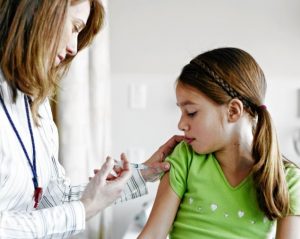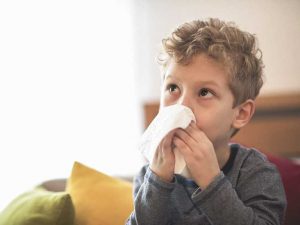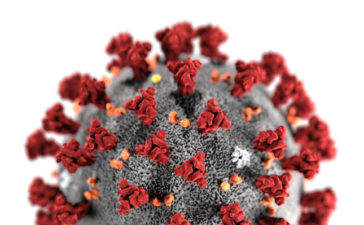New Delhi : According to UNICEF, pneumonia is described as an infection that inflames air sacs in one or both lungs. It is also the leading infectious cause of death among children under five. According to the official data, pneumonia kills close to 2,500 children a day.
Experts suggest that vaccination, proper nutrition and hygiene may help prevent the disease. India accounts for close to 20% of the global pneumonia deaths. In 2010, pneumococcal pneumonia accounted for approximately 16 per cent of all severe pneumonia cases and 30 per cent of pneumonia related deaths in children under- five years of age in India, said the Ministry of Health and Family Welfare in a report earlier this year, while announcing it will include the pneumococcal conjugate vaccine (PCV) in its Universal Immunisation Programme (UIP).
The vaccine for pneumonia — Pneumococcal Conjugate — will be available to the public in the State at much cheaper rates by 2019, according to doctors from the Indian Academy of Paediatrics (Madurai Chapter).
The vaccine, which costs around Rs. 3,800 per shot, will be sold for little or no money as the Government of India is to tie-up with Gavi (Global Alliance for Vaccine and Immunisation) under the Universal Immunisation Programme.
Gavi, a public-private global health partnership, has already covered 21 lakh children in five States across India. At present, the immunisation is provided for free to children, who are part of a special category without ability to develop the necessary antibodies. For instance, children with leukaemia or nephrotic syndrome.
Ahead of World Pneumonia Day, which is observed on November 12, doctors said mortality of children under the age of five was poor due to the presence of the infection.
S. Venkateswaran, former professor at the Department of Paediatrics in Madurai Medical College (MMC), said the aim in 2017 was to reduce the under-5 mortality rate from 29 per 1,000 live births to 25 per 1,000 live births.
Awareness of the infection and the availability of the vaccine was not prevalent even among doctors. “This year, we focused on providing awareness to doctors at all levels including those in smaller districts. Nursing homes have also been given education,” he said.
M. Nagendran, district president of IAP and a former professor of paediatrics at MMC, said pneumonia was similar to diseases such as tuberculosis because they could be eradicated with proper vaccination. If awareness is created among parents about improved public health, the respiratory infection would cease to exist.







